Photographs: Vinay Joshi/Reuters Jyoti Mukul
By reversing its programme of streamlining cooking gas subsidies and delivery, the United Progressive Alliance government has undone one of its more progressive achievements, says Jyoti Mukul.
In its decade-long rule, it has not been unusual for the Manmohan Singh government to roll back decisions under pressure from the Congress, the largest party in the coalition.
So, it did not surprise anyone, when within a fortnight of Congress Vice-President Rahul Gandhi publicly asking the prime minister to increase the number of subsidised LPG cylinders from nine to 12 in a year, the Cabinet promptly approved.
....
UPA's Aadhar: Should next govt take onus of reviving it?
Image: The UPA govt had earlier capped LPG subsidy to four cylinders per year.Photographs: Reuters
Such populism in an election year is explicable. What, however, intrigued many was the government’s decision to reverse another of its reforms at the same Cabinet meeting: the linkage of Aadhaar with LPG or cooking gas deliveries under the direct benefits transfer (DBT) scheme.
Indeed, this decision was taken despite the fact that Gandhi had labelled Aadhaar the largest anti-corruption platform launched so far at the All India Congress Committee meeting in January.
...
UPA's Aadhar: Should next govt take onus of reviving it?
Image: Village women stand in a queue to get themselves enrolled for the Unique Identification database system at Merta district in Rajasthan.Photographs: Mansi Thapliyal/Reuters
The Congress vice-president was counting Aadhaar among the United Progressive Alliance (UPA)’s major achievements because it can certainly be described as such.
Till a few years ago, no one in the government or outside could have imagined that the unique identification number or Aadhaar would start delivering subsidies or benefits directly into the bank accounts of individuals.
In fact, as recently as January 1 this year, 29 million consumers were added to the scheme to receive the subsidy on cooking gas cylinders directly in their bank account through the Aadhaar-linked DBT scheme.
...
UPA's Aadhar: Should next govt take onus of reviving it?
Image: Aadhar linked subsidy schemes has reached far fetched villages.Photographs: Mansi Thapliyal/Reuters
What suddenly turned the cards against these two game-changing initiatives of the UPA government is unclear.
The DBT programme in cooking gas (known as DBTL) had been the most ambitious of some 28 schemes that use Aadhaar-linked payment system.
In fact, 82 per cent of the money transferred under the DBT scheme had been on account of the cooking gas subsidy.
In all, 291 districts with some 10 million cooking gas consumers were brought under the DBT programme in six phases.
True, the roll-out has not been perfect, partly because the process is a little complicated, involving a two-way match.
....
UPA's Aadhar: Should next govt take onus of reviving it?
Image: One can link his bank account with Aadhar.Photographs: Reuters
Each consumer had to first acquire a unique identification (or Aadhaar) number and this number had to be linked or “seeded” with the LPG consumer number as well as a bank account.
The problem was that the entire exercise had to be completed within a three-month deadline, and the haste with which the government introduced the programme did not help.
Thus, for instance, the sixth phase of the programme was launched on January 1 despite the fact that only 12 per cent of consumers had had their Aadhaar numbers “seeded” with their LPG customer numbers, and the “seeding” with bank accounts was a little more than three per cent in the 107 districts in which the scheme had been rolled out till then.
....
UPA's Aadhar: Should next govt take onus of reviving it?
Image: A person arranges the Unique Identification documents submitted by people for their enrolment in Rajasthan.Photographs: Mansi Thapliyal/Reuters
All the same, officials say in areas where the seeding was extremely low extensions were being given till the compliance level reached almost 90 per cent.
Besides, with the launch of the scheme, people were being pushed towards a more efficient system of subsidy delivery that had been riddled with corruption till then.
The introduction of de-duplication and Know Your Customer norms eliminated some 500,000 suspect connections.
The introduction of DBTL and the simultaneous restriction on the number of subsidised cylinders were aimed at preventing the diversion of cooking gas meant for households use to non-domestic usage.
....
UPA's Aadhar: Should next govt take onus of reviving it?
Image: Citizens protest after the govt capped subsidy on LPG cylinders.Photographs: Amit Dave/Reuters
Capping the number of subsidised cylinders to which consumers are entitled ensured a limit on the government’s subsidy burden since heavy users would be required to buy some cylinders at market rates.
The political risk was huge but the government took the plunge all the same and even sacrificed its alliance with the Trinamool Congress in September 2012 by deciding to put in place a quota of six subsidised cylinders, saying 44 per cent of population used that much or even less.
Raising the cap to 12, however, now means that 92 per cent of consumers will be able to get their entire requirement at the subsidised price of Rs 414 per cylinder.
This would mostly nullify any gains in subsidy saving.
....
UPA's Aadhar: Should next govt take onus of reviving it?
Image: There are several sectors in which Aadhaar card could be used.Photographs: Courtesy, UIDAI
And, with DBTL on hold, the seven-month experiment with cooking gas could prove not just fatal for DBT in general, but is a telling comment on the penetration of Aadhaar among the population and the process of seeding.
Perhaps the Supreme Court order on September 23 last year that the Aadhaar number could not be made mandatory and that no one should “suffer” for want of it weakened the government’s resolution.
Besides, cooking gas being very basic of human needs, any policy change in pricing or delivery of subsidy or the fuel itself is not just politically risky but can put scores of people at inconvenience.
....
UPA's Aadhar: Should next govt take onus of reviving it?
Image: A villager goes through the process of a fingerprint scanner for the Unique Identification database system at an enrolment centre at Merta district in Rajasthan.Photographs: Mansi Thapliyal/Reuters
On a large base of some 140 million cooking gas connections, even one per cent of unhappy consumers could mean 2,570 complaints could potentially reach every member of Parliament.
Still, despite the patchy but not discouraging roll-out, the government managed to credit Rs 3,836 crore in 69 million transactions under DBTL till early February.
More importantly, consumers have subtly started getting a feel of market prices for cooking gas. Roughly 25 million Aadhaar-enabled LPG connections were fully compliant under the scheme till the time it was put on hold.
...
UPA's Aadhar: Should next govt take onus of reviving it?
Image: Nandan Nilekani, former head of Unique Identification Authority.Photographs: Reuters
Since these consumers were to pay the market price of Rs 1,080 and receive the subsidy in their bank accounts they could see how the subsidy more than halved the price for them.
With Unique Identification Authority Chairman Nandan Nilekani stepping down and moving on from the world of technology-driven subsidy reforms to hard-core politics and the likelihood of the UPA returning to power looking weak, Aadhaar appears to have lost the battle.
Currently, however, a 12-member DBTL committee under S G Dhande, former director, Indian Institute of Technology, Kanpur, is reviewing the scheme.
Perhaps the change brought about in the cooking gas economy will not lose its momentum if the next government proves forward-thinking enough to improve on one of the UPA’s solid achievements.

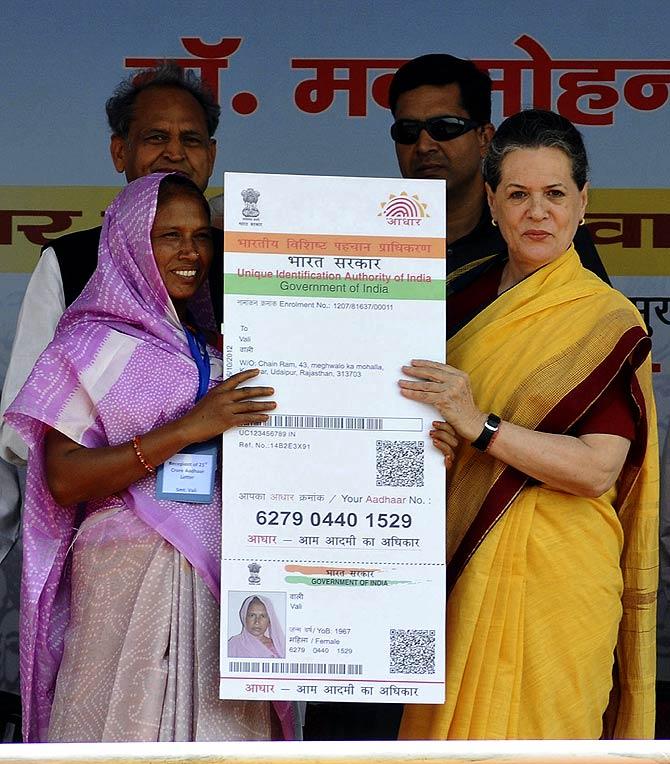


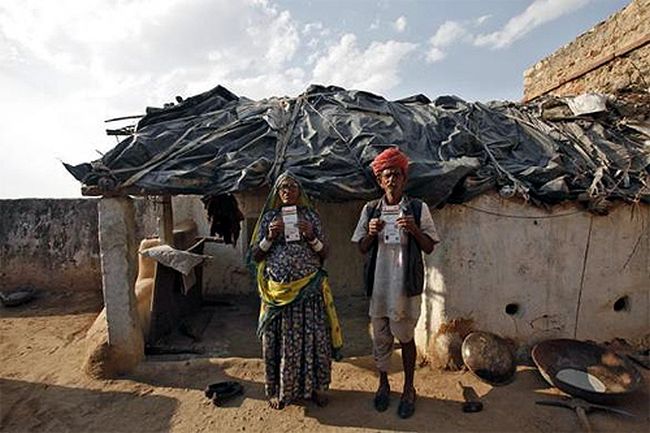
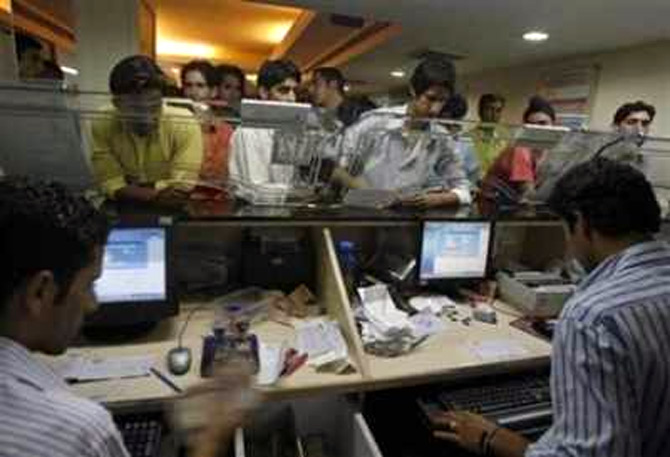
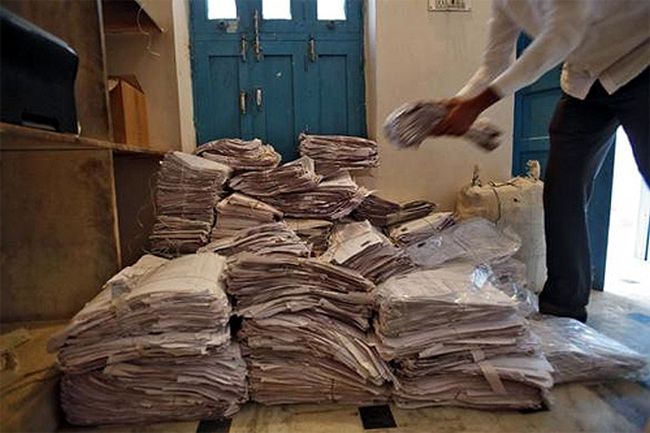
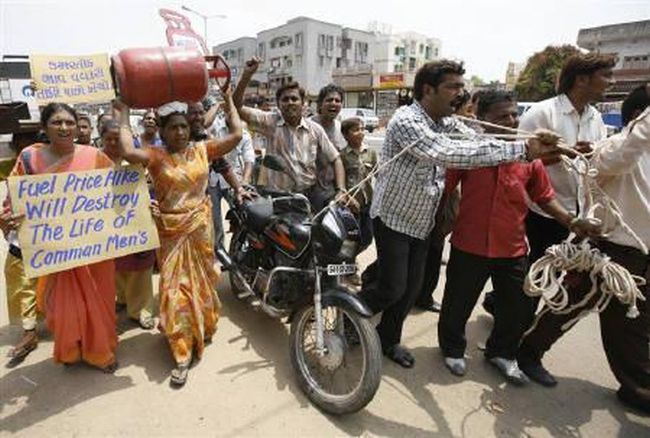
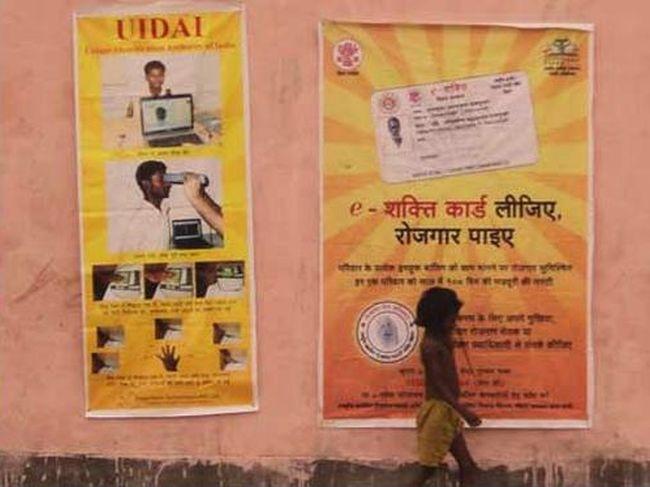
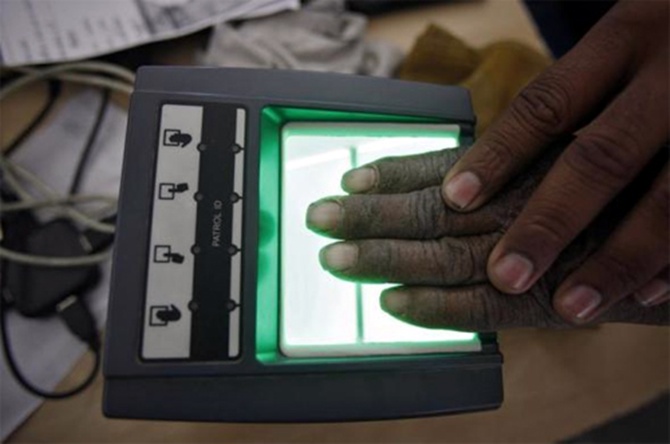
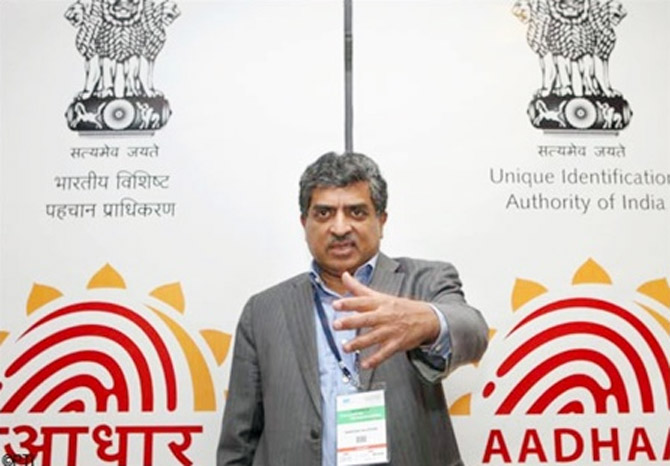

article